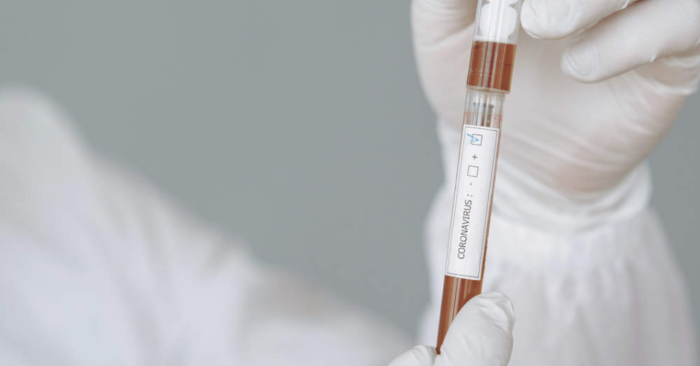Costa Rica is Developing COVID-19 Screening Tests
Costa Rica keeps rocking this pandemic by being one of the few countries in Latin America that’s working towards developing our very own COVID-19 screening tests.

Besides having scientists finding effective treatment against Covid-19, Costa Rica has a team of scientists that are currently working to develop COVID-19 screening tests in Costa Rica.
Given the intense global competition to acquire the elements used in the process, President Carlos Alvarado and the scientific authorities indicated that they hope to have the first results of the ongoing investigations in four weeks, and will require two more weeks to validate them with the patients.
Costa Rica looks to replace test components
The work carried out by the National Center for Biotechnological Innovations (CENIbiot) aims to replace the test components available on the world market with others that fulfill the same function, but are more easily accessible.
“Technically, it is possible to replace components, reagents or technologies with others that have a lower pressure of demand in the world market and, presumably, of easier access,” explained Randall Loaiza, director of CENIBiot at a press conference.
With these alternative components, scientists hope to build equipment capable of detecting the new coronavirus.
The Minister of Science and Technology, Luis Adrián Salazar, indicated that the tests are carried out with the support of other scientific and university institutions, high-tech companies and financing from the United Nations Development Program (UNDP).
The UN agency contributed $ 37,500 to launch the project, while CENIBiot provides in return the equivalent of $ 170,000 in equipment and personnel.
Costa Rica has become in recent years a pole of development of medical technology, to the point that this sector is the main export element of the country.
The self-sufficiency of protection devices for health personnel, as well as for the diagnosis and treatment of patients with COVID-19, are the strategies that Costa Rica is using to face the pandemic with the support of the academy and private companies.
The University of Costa Rica is producing swabs
The University of Costa Rica is working on the production of nasopharyngeal swabs, which are the devices used to collect samples from people for Covid-19 tests and which are expected to become scarce in the markets soon.
The dean of the Faculty of Microbiology, Norman Rojas, explained that in a pandemic “self-sufficiency needs arise” and that swabs are a small, but essential piece in the fight against the pandemic.
“The engineers very scientifically designed various types of swabs and we are doing the analysis of their characteristics of resistance, flexibility and the adhesion capacity of the material that is collected from each person for their study,” said Rojas.
Private dental laboratories are participating
Two private dental laboratories participate in this initiative, which have contributed their resin machines to make the first 300 swabs that will be tested for microbiological adhesiveness and mechanical qualities. Each Coronavirus test performed by the Ministry of Health costs between $12 and $35.
“Testing, testing and more testing” is the best strategy to fight against COVID-19, said WHO Secretary General Tedros Adhanom Ghebreyesus at the press conference held on March 16.
How the test performed in Costa Rica works: RT-PCR
Of the tests developed for the SARS-CoV-2 diagnosis, the RT-PCR technique is the most efficient in the world, and is currently the reference test.
It consists of reverse transcription (RT), a process in which the RNA of the virus is translated into DNA. This step is essential for the second step, the polymerase chain reaction (PCR), which is only possible with DNA.
Short segments of it, called probes, precisely bind to specific stretches of the viral genome, along with a protein called polymerase, ensuring that only the pathogen’s genome is amplified (multiplied), exponentially. When this happens, another component emits a light signal.
The regions of the viral genome that the DNA probes recognize vary according to the test in question: it recognizes regions of the E gene that are common to all coronaviruses, as well as the RdRp gene, which houses the enzyme responsible for the multiplication of the viral genome.
It is of utmost importance that the regions chosen are very specific to SARS-CoV-2, so that the mechanism is only activated if it is present, not with other similar viruses such as the cause of SARS or other human coronaviruses.
RT-PCR is the most sensitive of the coronavirus tests
Thanks to exponential amplification, it is able to recognize even minuscule amounts of the pathogen: five to ten copies of the virus’s RNA are enough to make it positive.
The method is based on a well-known and widely used technique, which provides the result in a few hours. If virus RNA is detected in the throat of a patient suffering from cough and fever, the cause is presumably COVID-19.
The drawbacks of RT-PCR
- The taking of the sample, in the form of a smear or exudate, must be done correctly, which does not always happen if it is the patient who does it at home.
- The amount of virus lodged in the throat varies enormously in the course of the infection: especially if it is advanced, at which time the virus is concentrated mainly in the lungs, the cotton swab may not collect any viral particles.
